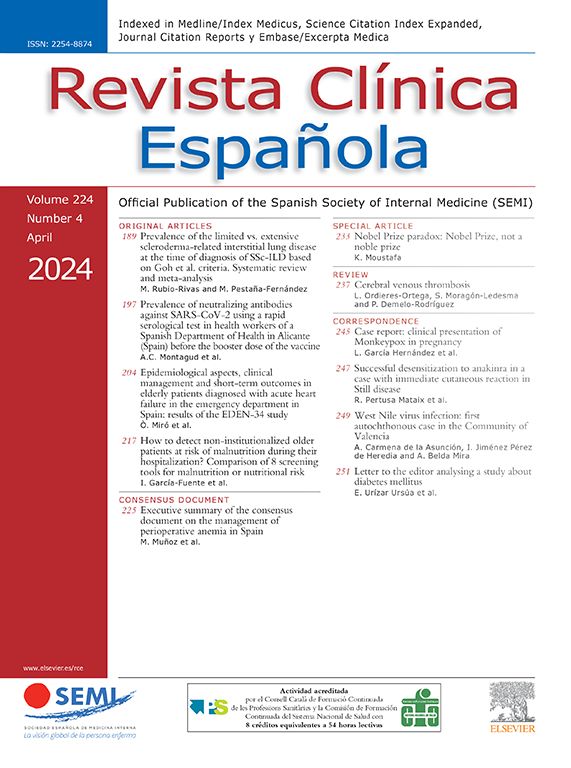After having read with interest the letter by Dr. Abril López de Medrano et al.,1 which we wholeheartedly endorse, we would like to raise an alarm about a curious process of scientific thinking that, to our understanding, is happening in a generalized manner in the global management of treatment against COVID-19. It is the so-called Argumentum ad ignorantiam fallacy, which consists of thinking that “lack of awareness of evidence contrary to an idea that we support counts as evidence in its favor.” Nothing is further from the truth, and even more so given the capacity of generating multiple trial-and-error tests with unpredictable consequences, particularly in a disease that we unfortunately still know very little about.
Let’s look at an example: a recently published preclinical study observed that the anthelmintic ivermectin achieves inhibition of SARS-CoV-2 replication in vitro in 48 h.2 As no evidence against it has been published to date, the possible theoretical benefits of this drug in humans are to be expected. Nevertheless, if we review the work in detail, it is observed that the dose of ivermectin used in vitro is 5 µM. To achieve this concentration in a human being, oral administration on the order of 1000–1200 mg of ivermectin would be needed. According to the drug's technical datasheet, the dose tested in humans (healthy volunteers) is around 100–120 mg (single dose) and severe side effects due to intoxication include ataxia and seizures.3 For this reason, it seems clear that it would not be possible to use this drug to treat SARS-CoV-2 in humans, as the levels required for it to be effective in humans would very probably also be highly toxic.
Let’s suppose that this drug had been tested at the usual doses approved by the Spanish Agency of Medicines and Medical Devices (AEMPS, for its initials in Spanish) (thus below the therapeutic range for COVID-19) in a health center that had low mortality rates for the disease. In this scenario, it could have falsely been assumed that ivermectin played a decisive role in curing these patients. This is not so, as adequate therapeutic levels in the blood would not have been achieved.
Therefore, we must be on the alert to publications on “sensationalist” therapies supported by small case series (ozone therapy, vitamin D supplements, etc.) and, sometimes, by the doubtful methodology that, supported by the principal of Argumentum ad ignorantiam, promise fantasies of cures for COVID-19 disease.
Please cite this article as: López Reboiro ML, Sardiña González C, López Castro J. COVID-19 y Argumentum ad ignorantiam o «no todo vale». Rev Clin Esp. 2020;220:457.




